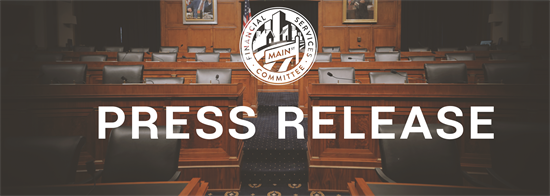Helping the World Fight Terror Financing
Washington,
March 1, 2016
WASHINGTON – Despite international regulations and oversight bodies that commit participating countries and institutions to combat money laundering and terror financing, no central coordinating body exists to help fulfill these commitments through training and technical assistance, witnesses told members of the Financial Services Task Force to Investigate Terror Financing today. Consistency among the various national and international agencies involved in fighting terrorist financing has been identified as an area of concern. Today’s hearing, “Helping the Developing World Fight Terror Financing,” was the Task Force’s seventh hearing since it was established by the House Financial Services Committee last year. “Throughout the lifetime of this Task Force, one fact has remained consistent: combatting terror finance is and must continue to be an international effort. The countries of today’s world are more interconnected than they have ever been before - especially when focusing on the financial system and the global trade system. With this much integration, the weakest link in the system becomes the target for exploitation by criminal organizations and terrorist groups,” said Rep. Michael Fitzpatrick (R-PA), the Chairman of the Task Force. Key Takeaways from the Hearing:
Topline Quotes from Witnesses: “It is very important to have a close partnership with the private sector in seeking to make this whole of governments approach effective. As we work with U.S. and overseas financial institutions toward our common goal of safeguarding the global financial system, let us not forget the law of unintended consequences. If we so harshly regulate banks that they withdraw services from post-conflict and other developing countries that are ideal breeding grounds for terrorists and their financiers, we will drive the work of these financiers into the shadows – unregulated and informal financing networks that are difficult to both track and disrupt. We must expect banks to be held to high standards in this area, but not set the bar so impossibly high that the only rational business decision is to withdraw. In addition to feeding the parlous economic conditions that give rise to terrorists, withdrawal of financial services, sometimes called de-risking, will make it even harder to succeed in the effort you are so diligently pursuing to fight terror finance.” - Ambassador Robert Kimmitt, Senior International Counsel, WilmerHale “Given their weaker institutional capacities and systems, it is perhaps inevitable that developing countries, particularly lower-income developing countries, would become preferred targets for criminal and terrorist actors. Gaps in bank supervision capacities and weak technical skills make these countries attractive targets; moreover governance and corruption issues within government bureaucracies can often undermine even the efforts of honest governments in these areas.” – James Adams, former Vice President, East Asia and Pacific Region, World Bank |


